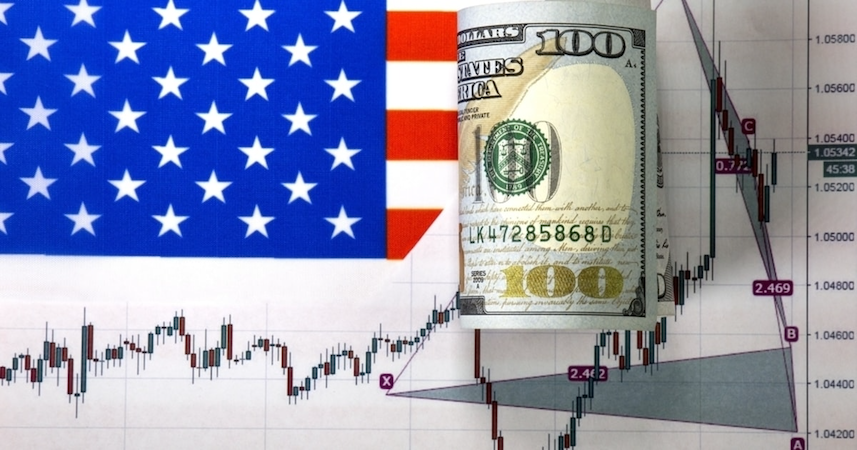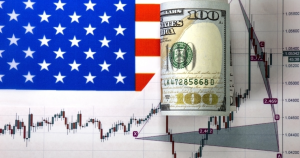Join Our Telegram channel to stay up to date on breaking news coverage
A study from the Cato Institute, a libertarian research institution based in Washington, D.C., reveals that a mere 16% of Americans are in favor of a Central Bank Digital Currency (CBDC), while 34% stand against the technology. Interestingly, 49% of those surveyed indicated that they don’t have a solid opinion on the matter.
The research also unveiled that just 28% of respondents were acquainted with the concept of CBDCs. Despite this lack of awareness, the technology is gaining traction within the crypto industry and becoming a notable issue in the 2024 election campaign. CBDCs, akin to stablecoins tied to a sovereign currency like the dollar, are digital alternatives to traditional cash. Instead of issuance via decentralized networks by private entities, they’re administered by governments or central banks.
The concept of CBDCs has been met with skepticism within the crypto community for years. Edward Snowden, the whistleblower, famously denounced them as “cryptofascist currencies” in 2021, claiming they had the potential to wipe out American savings. As we have previously reported, Snowden believes crypto has been going in the wrong direction, that of “digital currencies” instead of the decentralized idea on which they were originally founded on. He gives all the reasons why “digital currencies” can easily becomes tools for government control and abuse in this youtube video.
There have been numerous warnings about the possible perils of CBDCs, mostly from conservative figures like lawmaker Tom Emmer. Emmer has proposed a bill restricting the Federal Reserve’s ability to issue a CBDC. The topic also featured on the Fox News program “Tucker Carlson Tonight” in March. According to the survey by the Cato Institute, more Republicans (53%) than Democrats (22%) or independent voters (27%) were against CBDCs. Republicans were also the group most likely to understand the concept of CBDCs.
Criticism of the Digital Dollar
Both sides of the political spectrum, including Democratic candidate Robert F. Kennedy Jr and Republican Florida Governor Ron DeSantis, have publicly criticized CBDCs in recent times. Notably, DeSantis has even taken steps to ban CBDCs in Florida.
DeSantis has also recently reiterated his opposition to a digital dollar during a Twitter Space session with Elon Musk, assuring that a CBDC wouldn’t be introduced during his presidency. He had previously expressed concerns that a CBDC could potentially restrict firearm acquisitions and impose limitations on fuel purchases.
While the Federal Reserve has stated that a CBDC for daily transactions should ideally be approved by Congress and enjoy broad societal support, it views a digital dollar for financial institutions as a separate issue. Despite political disagreements, the Cato Institute found a majority of both Republicans and Democrats were united in their opposition to a CBDC that could monitor and control individual spending. Additionally, they shared apprehensions over the government potentially gaining access to personal spending data.
Critics such as Tom Emmer have raised concerns about the possible misuse of CBDCs as instruments of financial surveillance and government overreach. On the other hand, proponents argue that CBDCs could enhance financial inclusion. Emmer also recently hinted at covert support from Democrats for his bill concerning CBDCs and the Federal Reserve.
According to the Cato Institute, Democrats found the decreased risk of money laundering and fraud as the most convincing reasons to support CBDCs. Conversely, Republicans valued the technology’s potential to ensure welfare payments are used appropriately. Interestingly, only 22% of Americans said they would likely use a CBDC if available. The research suggests that although Republicans are more likely to understand and oppose CBDCs, Democrats also harbor certain reservations.
The Cato Institute concluded by acknowledging that the concept of CBDCs in the U.S. is a relatively recent development and many Americans remain uncertain. After being introduced to some potential advantages and disadvantages of a CBDC, the public appears cautious.
Related
- Edward Snowden: Crypto is Heading in the Wrong Direction
- The American CBDC Will Spark A Massive Transfer Of Power From Citizens To Government, Says Ron DeSantis
- Best Web3 Projects
- CBDCs might “revolutionize” the world’s financial systems
Best Wallet - Diversify Your Crypto Portfolio
- Easy to Use, Feature-Driven Crypto Wallet
- Get Early Access to Upcoming Token ICOs
- Multi-Chain, Multi-Wallet, Non-Custodial
- Now On App Store, Google Play
- Stake To Earn Native Token $BEST
- 250,000+ Monthly Active Users
Join Our Telegram channel to stay up to date on breaking news coverage


